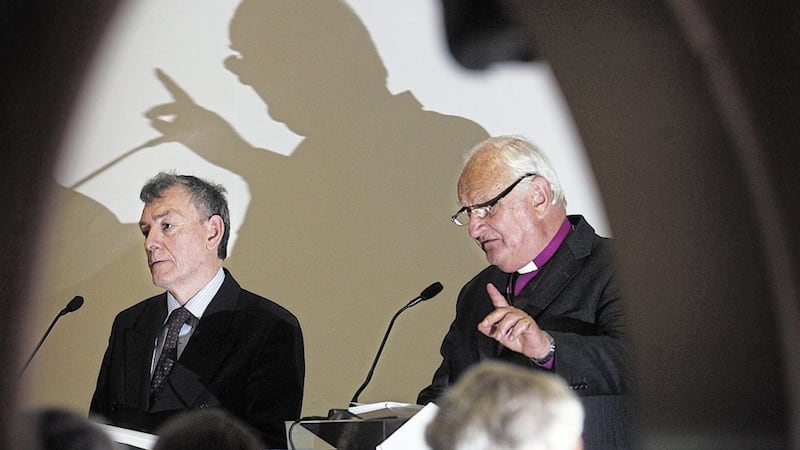Sometimes the intensity of an individual’s need obscures the requirements of the communal. But many of the issues from our violent past cannot be understood nor addressed in the singular.
Societal and communal relationships were also victims of violence and destruction in the years of the Troubles and should not be overlooked in the midst of the individual cries for justice and truth.
Recently I reread a speech from the Consultative Group on the Past (Eames/Bradley), delivered thirteen years ago. It said: “Republicans need to convince their neighbours that they will not take up arms again to advance their political cause. They have to say ’it must never happen again’. If the aim of the republican struggle was to unite Catholic, Protestant and Dissenter, the brutal logic of their violence undermined this aim. The reality of the depth of division that has been caused between neighbours - who now need to share the future, needs to be acknowledged. Regardless of the uniform or the cause, countrymen killed fellow countrymen. While republicans have embarked on a process to address some of these issues, more needs to be done – apologising to non-combatants just isn’t good enough”.
The same speech was equally challenging to the loyalists, the British security services and other combatants involved in our Troubles but for brevity and clarity it is best on this occasion to draw attention to republicans and the IRA.
The content of the speech comes into focus again as the secretary of state decides whether to push ahead with his unpopular proposals on the past or opts for a more nuanced approach. Alongside the individual legal and truth issues, there is some reference in his proposals to address the communal issues, but they are there almost as an appendix and received little or no attention in the melee that followed the publication of the so-called command paper issued by the British government.
There are many communal issues but perhaps the thorniest one is the expectation from unionists that republicans should admit and apologise for the unjustified and unjustifiable violence of the IRA.
This demand manifests itself in a variety of ways. Sometimes it is a direct request from a family or from a victims’ group. Often it is the foundational rationale for the bitterness and hatred of some politicians towards Sinn Féin. It is also to be found in the determination of most unionists never to countenance any equivalence between the violence of the IRA and the violence of any of the security services.
I would speculate that this demand will not be met. The present republican movement will not feel inclined or entitled to belittle the motivation and the moral choices of their members and most especially of those who died in all the various campaigns down through the decades.
Present day republicans, however, are not incapable nor disbarred from speaking of present and future times. I was in a room one night when a very hurt member of the audience from the unionist community said that the least republicans could do would be to state that they would never, ever again, kill people from his community for political reasons.
Republicans need to convince their neighbours that they will not take up arms again to advance their political cause. They need to go beyond the apology to non-combatants. To go beyond the statement that the ‘war is over.’ They need to pledge that ‘it must never happen again’.
It is Sinn Féin who inherit the legacy of the IRA. Their mission is to advance unity among the people of this island. They are now realistically vying to become part of government in the south. Apologies and pledges do not, of themselves, change minds nor obscure memory. But they do smooth the rough ground of hurt and bitterness that has sway in a divided society.
That can provide for less poisonous plants to grow.









